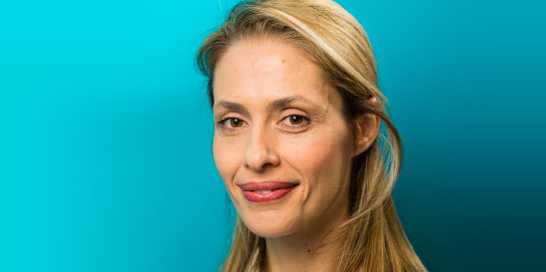Citizens create knowledge
Search for asteroids, observe birds or make the computing power of your own computer available: through ‘citizen science’, citizens can participate in various research projects. This week, a workshop takes place at ETH Zurich. Effy Vayena, bioethicist at the University of Zurich and co-organiser of the workshop in an interview.
Is citizen science a new phenomenon?
Effy Vayena: No, but today’s communication technology allows for a much simpler and broader participation by citizens in research projects. In the area of health, for example, many people today collect data on their fitness or nutrition on their mobile devices. This kind of data could also easily be made available for research purposes. There is great potential. For science, citizen science means, among other things, the availability of large and thus more representative amounts of data, and the ability to reduce data collection and analysis costs and obtain findings faster. Citizen scientists are collaborators and partners in the research enterprise. They are more engaged with the scientific process and an integral part of it.
Why hold a workshop on citizen science?
Citizens participate in numerous projects at the research centre in Zurich. Mike Martin, a professor of gerontology at the University of Zurich, works with seniors. They take part in studies, provide information about their lives and participate in memory tests. Ernst Hafen, a professor at ETH Zurich, is currently working on an international project in which personal health data from scientists will be assessed, including information collected by smartphones on nutrition, fitness and blood pressure, as well as genetic data. Another well-known project is ‘Galaxy Zoo’ co-initiated by ETH Zurich astronomy professor Kevin Schawinski. Hundreds of thousands of amateurs are helping to analyse telescopic images of the sky and classify galaxies. At our workshop, we want to bring the Zurich scientists working on these kinds of projects and citizens together in order to discuss what it takes for citizen science to work.
What are the most important questions?
We must ensure that citizen participation occurs in an ethically acceptable manner. Participation must be on a voluntary basis, for example, and citizens should not be exposed to unreasonable risks. In addition, participants should be recognised for their contribution and be able to benefit in some way.
Is this always the case?
Not necessarily. For example, some research in the health domain, where I focus, used online data without permission by those whose data were used. Patients exchange information about their disease experiences on platforms – an interesting data source for scientists, but under what conditions should these data be used? On the internet, the border that separates public and private information is blurred. The fundamental principle of ‘informed consent’ to participate in a research project is correspondingly unclear. Most citizen science project happen online, how does these ethical questions play out? These are questions we need to think about carefully.
How can the situation be improved?
We need guidelines and rules to deal with such questions. And we need appropriate instruments that help us initiate and accompany citizen participation effectively in research projects. Such guidelines are only in their infancy today. This workshop aims to begin the discussion about how to develop such frameworks, tools and guidance for the Zurich institutions and the citizens here and elsewhere. I am hoping for broad participation, not only from scientists but from citizens too. It is important that this is a dialogue amongst all interested parties and that citizens are playing an influential role in the deliberations.
This is an adapted version of an interview by Adrian Ritter, which first appeared in external pageUZH-Newscall_made.
Workshop
Under the title ‘Opportunities & Challenges of Citizen Science’, a workshop will be held at ETH Zurich on Thursday 22 January and Friday 23 January. The event is organised by Ernst Hafen and Kevin Schawinski, professors at ETH Zurich, Mike Martin, professor at the University of Zurich, and Effy Vayena, senior fellow at the University of Zurich. Most presentations will be held in English.
Registration and further information: external pagecitizenscience.chcall_made

